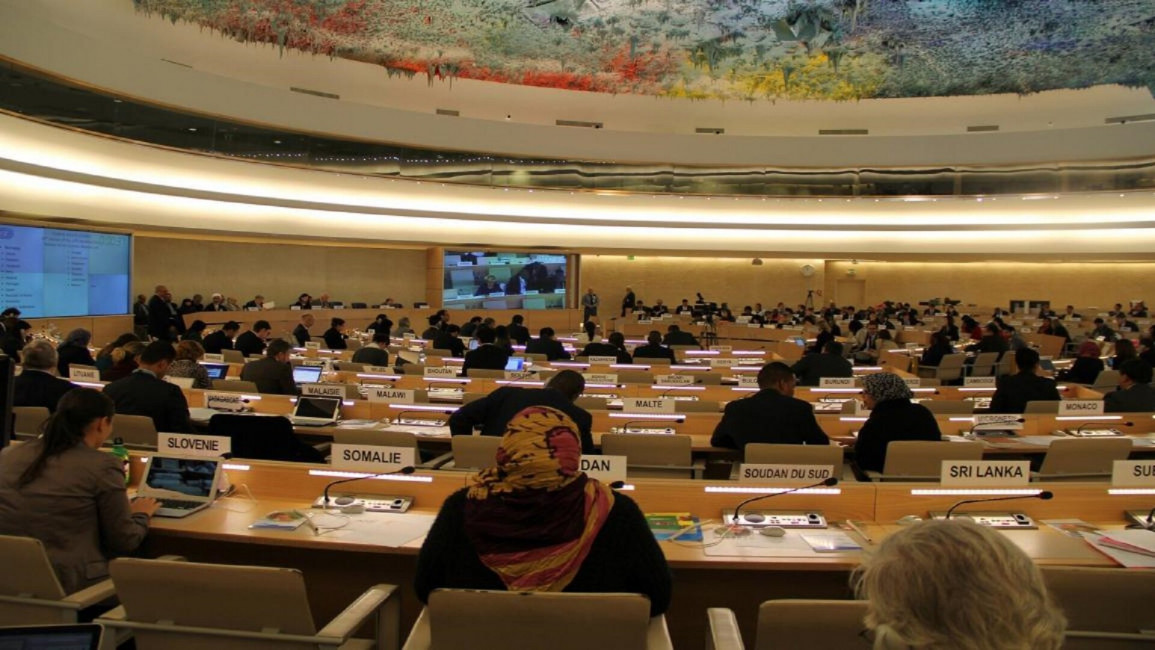Washington will continue to defend Israel, US envoy tells UN
Joe Biden's administration has vowed to continue to defend Israel and counter efforts targeting it, representative of the United States' ambassador to the United Nations Richard Miles told the UN on Friday.
The US still seeks to re-establish relations with the Palestinians, Miles said, adding that such move will not contradict US commitment to Israel.
Miles also strongly criticised the UN Human Rights Council, along with a large number of unilateral UN resolutions targeting Israel".
"This is at a time when the United Nations and other international organizations ignore destabilizing practices in the region and around the world," he said, according to The New Arab's Arabic-language service.
Miles slammed the International Criminal Court over its decision early in February to investigate possible war crimes committed by Israel in the occupied Palestinian territories.
Read more: ICC Israeli war crimes probe is first real test for Biden administration
Meanwhile, Tor Winsland, the UN Secretary-General's Special Coordinator for the Middle East Peace Process and his Personal Representative to the Palestinian Authority, warned that the unilateral steps imposed on the ground would reduce the possibility of achieving a two-state solution per the pre-1967 borders.
In recent weeks, Israeli forces have demolished more than 170 buildings and homes, which led to the displacement of 314 Palestinians, including 67 women and 177 children, Winsland told the UN Security Council in New York via video conference.
He noted that Israeli demolitions are mostly carried out under the pretext that there are no permits for these buildings. However, it is almost impossible for Palestinians to obtain building permits, especially in Jerusalem and the surrounding areas.
He also referred to the continuous displacement of Palestinians in the Bedouin village of Humsa Al-Buqi'a.
"I repeat the letter of the Humanitarian Coordinator, in which he urged Israel to stop the demolition and confiscation of Palestinian property in the West Bank, including East Jerusalem, and to allow them to develop their societies," he said.
Winsland discussed moves within the international arena, among them an Arab League statement in early February reaffirming the bloc’s support for a two-state solution, while urging Israel to support the peace process.
He also highlighted the negative consequences of the coronavirus pandemic on the Palestinian economy, stressing that its recovery may take several years.
Meanwhile, Germany, Estonia, France, Ireland, Belgium, Norway and the United Kingdom issued a joint statement expressing concern over the recent demolitions.
"We are extremely concerned about the repeated demolitions carried out by the Israeli authorities in the village of Homsa Al-Buqi'a , including the demolition of buildings funded by the European Union and donors, and the negative impact of that demolition on the lives of nearly seventy Palestinians, among them 41 children," the statement said.
The statement drew attention to "the recent and repeated demolitions as part of the large-scale demolition and confiscation operations carried out by the Israeli occupation forces since the beginning of the year".
It called on Israel to halt these demolitions, and to allow full and unimpeded humanitarian aid to reach Palestinians.
The statement also reiterated the countries' opposition towards Israeli settlement policies, including forced transfers, house demolitions, and illegal confiscation of property under international law, including the Fourth Geneva Convention, which also constitute an obstacle to the two-state solution.
Follow us on Facebook, Twitter and Instagram to stay connected



